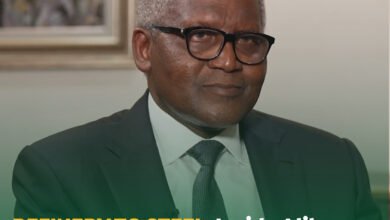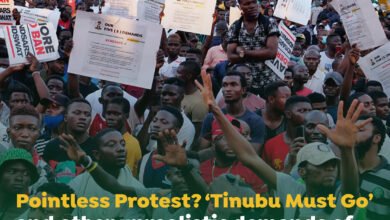
A bill seeking to revert Nigeria’s national anthem to the old one has sparked a fiery debate among Nigerians. While the Minister of Justice, Prince Lateef Fagbemi (SAN), urged the National Assembly (NASS) to reconsider, his appeal appears to have fallen on deaf ears.
The current national anthem, adopted in 1978, opens with the lines: “Arise, O compatriots, Nigeria’s call obey / To serve our fatherland with love and strength and faith / The labour of our heroes past shall never be in vain / To serve with heart and might, to preserve our unity / One nation bound in freedom, peace and justice.”
Proponents of the old anthem argue for a return to its more stirring lyrics: “Nigeria, we hail thee, our own dear native land, / Though tribe and tongue may differ, in brotherhood we stand / Nigeria! the symbol of unity and peace / Of freedom, justice and equality.”
Senate Speedy Passage
Already, the Senate has ensured a speedy passage of the bill on May 28, 2024, arguing that the older anthem would promote a better symbol for unity, peace, and prosperity compared to the current one.
Opeyemi Bamidele, Senate Leader, noted that the old anthem inspired deep patriotism among Nigerians, saying that those who lived through that era recognize its crucial role in our nation’s history, evoking nostalgia and fond memories of our early years”.
Public Opinion on the Change
Several polls and vox pop conducted on this issue show that Nigerians are divided on whether to stick with the present anthem or revert to the old one while some are undecided.
The poll also revealed a generational gap, with older Nigerians slightly more likely to favour the old anthem.
Analyst Uche Ramsey argues that the economic situation makes the anthem change a low priority. He points to the high cost of basic necessities like food and fuel, making Nigerians more concerned with putting food on the table than national symbols.
“Nigerians are suspicious of the intention of the national assembly on the matter because, ultimately, you will wonder why the lawmakers haven’t pushed for laws that will improve the standard of living of ordinary Nigerians,” he lamented.
Former minority leader Enyinnaya Abaribe and a constitutional lawyer, Chief Mike Ozekhome, echoed similar warnings.
The Path Forward
The Minister of Justice, Prince Lateef Fagbemi, advocates for a wider consultation process. He noted that an important bill on the National Anthem should not be done by legislative fiat or Presidential proclamation.
A better approach could involve online polls, public hearings nationwide or even another national anthem competition.
“I would like to observe that it is generally accepted that a national anthem is considered a major symbol of national identity and culture,” the minister posited, “it is meant to reflect the people’s hopes, values and history.
“A national anthem is expected to enjoy universal acceptance and veneration among the citizens for it to attain the status of an official song that commands respect. Patriotism and national consciousness”.
The Minister noted the current anthem was subjected to competition with around 1,500 submissions from Nigerians.
As rightly pointed out by the former Minority Leader, there are more pressing issues that should dominate debates at a time over the national anthem conversation
He said; “While we support the efforts of the Federal government under President Bola A. Tinubu to ameliorate the difficulties occasioned by biting inflation, crippling unemployment, and widespread insecurity that Nigerians face today, we do not feel that it is a priority to embark on a homegrown National anthem 46 years after its adoption by Nigerians”





